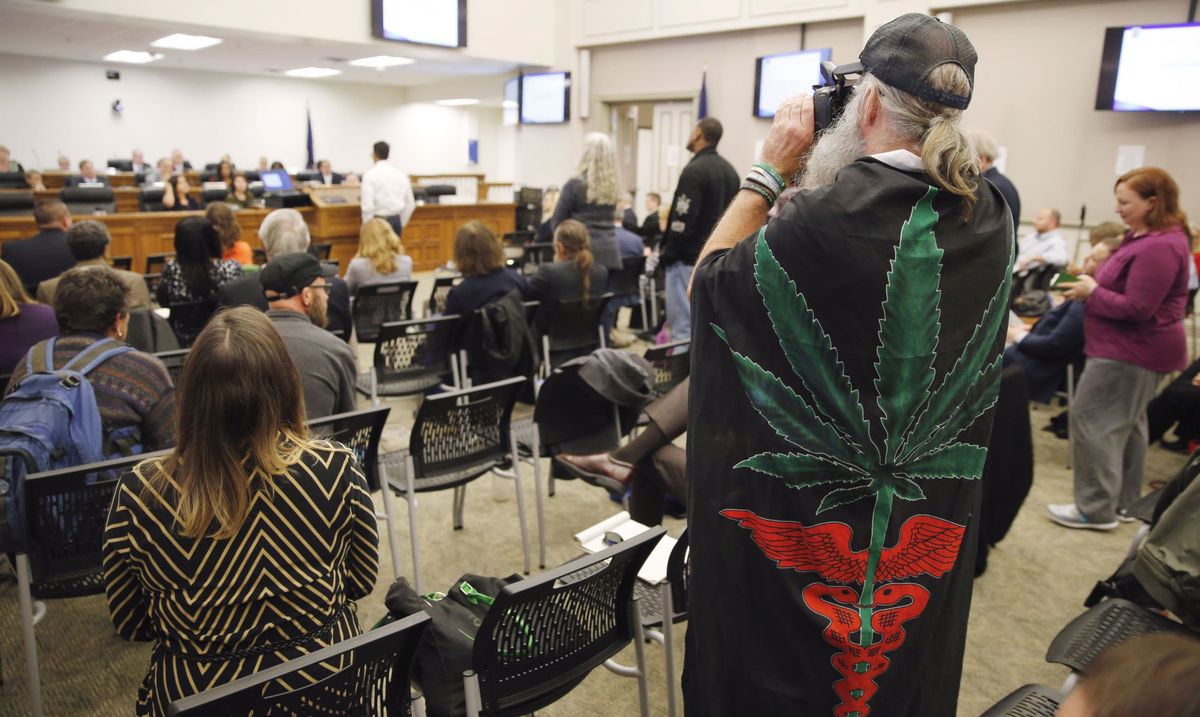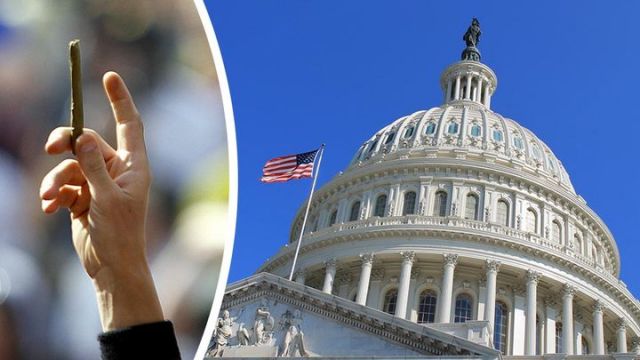In the 10-year period ending last year, there were 133,256 arrests in Virginia for possession of marijuana, 84 percent of them first-time offenses.
Nevertheless, relatively few people go to jail in the state solely for possession of marijuana, according to a study prompted by a proposal that would decriminalize the possession of small amounts of the drug for personal use.
The report by the staff of the Virginia State Crime Commission found that on July 20, there were 96 jail inmates awaiting trial for possession of marijuana and 31 serving jail time after conviction. State figures show there were more than 29,000 people in Virginia’s jails that same day.
State crime commission members were briefed on the findings of the monthslong study prior to taking mixed comment from 32 people at a hearing Monday. Under the proposal, possession of small amounts of marijuana would remain illegal but would become a civil offense, instead of a criminal one.
“We are here to talk about decriminalization, not legalization,” said state Sen. Thomas K. Norment Jr., R-James City, to those in attendance. Norment, a member of the crime commission, helped prompt the study out of concerns about the collateral consequences of such convictions.
Colin L. Drabert, senior staff attorney for the commission, outlined some of those ramifications, which can include effects on employment, federal higher education aid, housing, immigration status, the ability to purchase or transport a firearm, and child custody.
Roy Scherer, who has long lobbied for the reform of the state’s marijuana laws, was one of the first speakers.
“I’d like to congratulate you. The idea of decriminalizing marijuana is only 45 years old. So Virginia is catching up,” he told the commission.
A representative of the National Organization for the Reform of Marijuana Laws thanked the commission for considering the matter and said none of the states that have decriminalized have reversed course, showing the move is effective.
Two other early speakers strongly opposed the proposal, with one likening it to opening Pandora’s box. Another speaker said decriminalization would reduce the perception of harm the drug represents.
“Marijuana is still an addictive, harmful drug. … Please protect our youth,” she said.
A representative of the American Automobile Association told the commission that the organization does not have a position on the bill, but she urged legislators to carefully consider the possible impact on traffic safety.The report found that 30 states have criminal penalties for possession; eight states and the District of Columbia allow for legal recreational use; seven states have civil or other noncriminal penalties; and five states have blended civil and criminal penalties.
In Virginia, the law does not specify an amount of marijuana to be considered for personal use, as opposed to amounts that could be construed as possession with the intent to distribute. A first conviction can result in up to 30 days in jail and a $500 fine. A defendant’s driver’s license is revoked for six months if convicted or if a judge defers deciding the matter.
Roughly half of first-time offenders charged are convicted, and of that number the great majority serve no jail sentence.
The report noted that first-time offenders in Virginia may enter a program to have the charge deferred or dismissed, and a survey of prosecutors and defense lawyers showed that first-offense marijuana cases are commonly taken under advisement by a judge, amended to another offense or continued generally with conditions.
Drabert reported that the crime commission’s staff has received nearly 4,000 written comments from the public regarding the proposal, with 3,743 supporting decriminalization and 107 not supporting.
The staff will now consider the remarks as well as suggestions from commission members and make recommendations for the commission to consider at a future meeting. Endorsement of legislation by the commission does not ensure passage of a bill, but it carries great weight in the legislature.
credit:richmond.com


